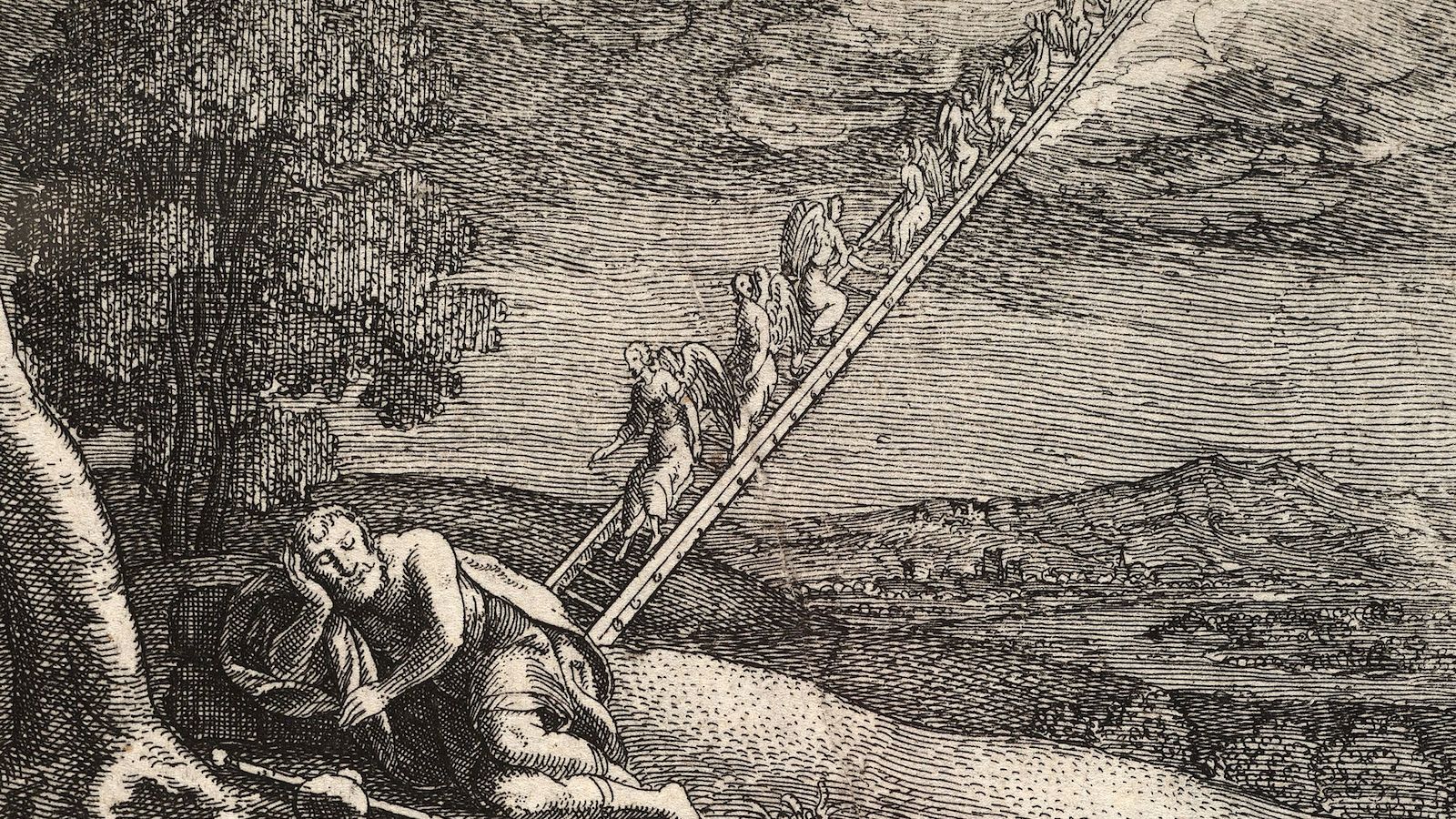Commentary on Parashat Vayetzei, Genesis 28:10-32:3
At the beginning of Parashat Vayetzei, we encounter Jacob on the run from Esau, having tricked his brother out of the birthright. As night falls, Jacob rests for the night and has a startling prophetic dream involving angels ascending and descending a ladder between earth and heaven.
During the dream God makes a number of promises to Jacob, concerning both his future well-being and that of his progeny. The following morning Jacob makes a neder, a vow, which largely parallels God’s promises in the dream, but with several deviations which may grant insight into Jacob’s psychological state:
| The Dream | Jacob’s Vow |
| The land… I will give it to you and your descendants… All the families of the earth will be blessed through you and your descendants. | |
| Behold, I will be with you; | If God will be with me, |
| I will watch over you wherever you go, | And will watch over me on this path upon which I go, |
| And will provide me with bread to eat and clothing to wear, | |
| And I will return you to this land. | And I will return in peace to my fathers house, |
| I will not leave you. | The Lord will be for me a God. |
The differences between Jacob’s neder and God’s promise reveal Jacob’s fear for his personal security. He has exchanged the more general, long-term vision of God’s blessing for more personal, immediate needs. God promises to “watch over you wherever you go,” while Jacob asks only for supervision of the path he currently walks. A promise to return to the land becomes a hope simply to return to his father’s home in peace. The promise of descendents disappears completely from Jacob’s response. Instead he asks only for the most basic sustenance and raiment.
The events that led Jacob to this moment provide us with a backdrop to his anxiety. Jacob’s lack of security, and specifically his food insecurity, are the result of displacement from his home, having fled for his life due to the threat of Esau’s violence. He no longer has access to his family’s land or flocks, Esau’s game meat, or for that matter, his mother’s cooking. It is no wonder that Jacob the wanderer fears for where his next meal will come from.

Help us keep Jewish knowledge accessible to millions of people around the world.
Your donation to My Jewish Learning fuels endless journeys of Jewish discovery. With your help, My Jewish Learning can continue to provide nonstop opportunities for learning, connection and growth.
Desperation Today
This same desperation pervades the lives of millions of people around the globe today, where conflict, displacement and food insecurity are constant realities of life. In Democratic Republic of Congo over 800,000 people have been displaced by violence in the past year alone. As they remain in Congolese territory they are considered IDPs–Internally Displaced Persons, a limbo classification that does not carry the same protections as formal refugee status. Separated from their farmland and livelihoods, IDPs must seek alternative sources of food, often relying on already under-resourced local families or foreign aid.
Development organizations in the region, including a number of AJWS grantees, themselves face a severe shortage in supplies and support as well as threats to their personal safety. Several IDP camps have experienced violent raids by militia, while food supplies have been stretched to the breaking point. Planted crops have been plundered and food aid deliveries are vulnerable to looting and disruption.
In situations like these, emergency relief groups save lives by addressing the short-term needs of IDPs. As we saw in Jacob’s response to God’s promises, when one’s immediate safety and security is threatened, it is natural and understandable to focus on the present. It is important, however, not to lose sight of the larger, longer-term vision and hope for the future. Grassroots organizations worldwide work to address issues that rapid relief cannot reach, such as restarting children’s education, helping people rebuild livelihoods and addressing profound psychological trauma. AJWS furthers this critical work in places like DRC by providing sustained, long-term support to organizations in the epicenter of conflicts, enabling communities to repair, over time, the deep rifts in society made by violence and war.
Jacob, in his moment of fear and insecurity, could only think of his own immediate survival, completely omitting any reference to descendants in his vow. But later in Genesis, Jacob finds relative stability and establishes a family and a nation, fulfilling the divine promise that “all the families of the earth will be blessed through you and your descendants.” When we support contemporary organizations focusing on long-term goals and sustainability, we enable this blessing to replace appeals for bread and shelter, and help to build a world where future generations can dwell in security and prosperity.
Provided by American Jewish World Service, pursuing global justice through grassroots change.



